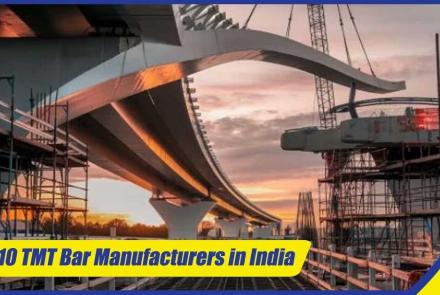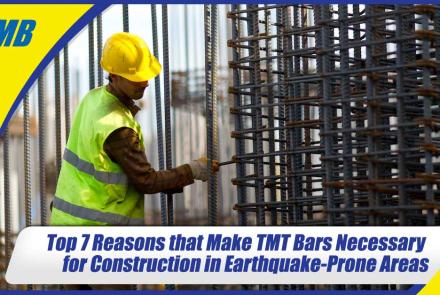Why Is SRMB AZAR Better Than Others?
Corrosion of steel bars encased in concrete is a major concern for construction engineers.
For many years, hot-dip galvanised rebars have offered a solution though not fully.
As the name suggests, the bars are made by dipping steel or iron bars in molten zinc.
The result is a coating of zinc on the surface of the bar, which prevents corrosion of the core when the bar is surrounded by concrete.
RELATED:
To ease the pain of construction workers and homebuilders, and to make the bars stronger than the normal that were available in the market we at SRMB introduced SRMB AZAR.
SRMB AZAR is a corrosion resistant rebar for Indian consumers at Indian prices in technical collaboration with M/S John Galt Zinga Technologies, who are authorized sole representative of M/S ZINGA METALL BVBA, Belgium, in India.
ZINGA COATING ON SRMB AZAR- WHY IS IT DIFFERENT?
- Zinc used in the Film Galvanisation or zinganisation process is produced by a special atomization process which provides its unique particle size and structure, quality and purity.
- The Zinc atomized particles are in flake form, which ensure zero porosity in the applied coating.
- The polymerized coating contains 96% of guaranteed Zinc film in a dry thickness which has a purity of 99.995%.
- The Zinga coating on SRMB AZAR is a one component zinc compound.
- As the Zinga layer is metallic in nature it has a similar co-efficient of thermal expansion because of which temperature changes does not cause cracking in the coating.
- The Zinga layer is composed of metallic / non-metallic components and bonds with the concrete like the underlying base metal does.
- Zinga coating has a physical (electro-mechanical) bond with the steel. A potential of (-)1060mV develops between the Zinga and steel.

HERE’S WHY SRMB AZAR IS BETTER THAN GALVANIZED REBARS:
|
|
GALVANISED REBAR |
SRMB AZAR |
|
Process of manufacturing |
The bar is dipped into a vat of molten zinc to coat it completely |
Molten, atomised zinc is sprayed on the surface of the bar |
|
Thickness of zinc coating |
May not be uniform, depending on the angle at which the bar is dipped into the zinc |
Always uniform, since the zinc is sprayed on the surface of the iron or steel bar |
|
Resistance to physical deformation of bar |
Often cracks when the bar is bent, leaving the core exposed |
Does not crack even when the bar is under stress |
|
Porosity |
Multiple layers of zinc might develop pores as the metal oxidises on contact with air |
The uniform, flake form of the zinc particles leaves no space for pores to form on the surface |
|
Purity of zinc coating |
The layer might not be pure, as other metal impurities, if present, will melt with zinc |
The method followed ensures that only zinc is sprayed on the surface of the bar |
|
Bonding with concrete |
The coating might be smooth, reducing the strength of bond with the surrounding concrete |
The coating is rough in nature, ensuring better adhesion of the bars with the surrounding concrete |




